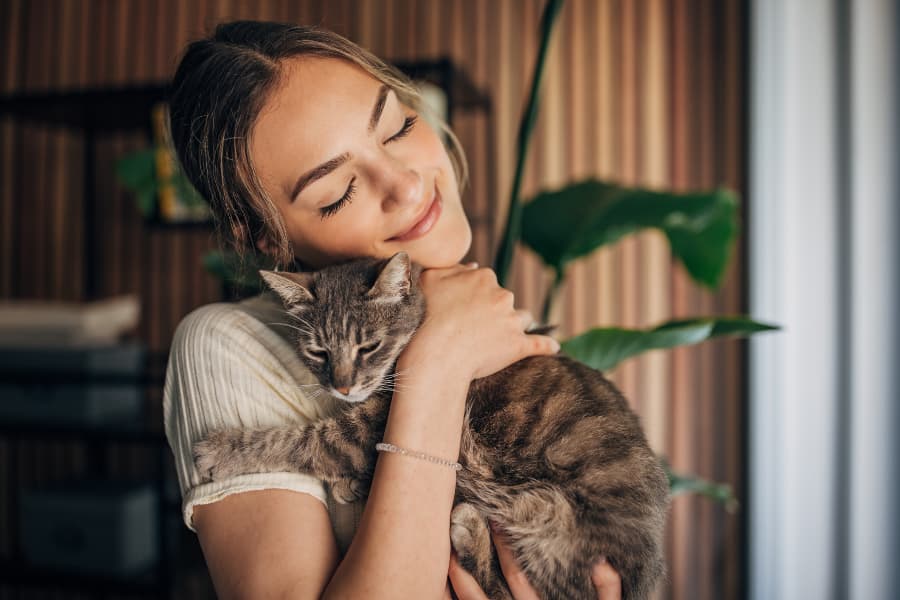
Ultimate Pet Owner Savings Guide: 21 Ways to Save as a Pet Owner
Owning a pet brings endless love and companionship, but it also comes with financial responsibilities. From food and toys to vet visits and grooming, the costs can add up quickly. However, the good news is that with a little planning, you can keep your pet healthy and happy without straining your wallet. At West Park […]
READ MORE

Signs Your Cat Has Anxiety and How to Treat It
Cats can be mysterious, so it can be difficult to spot changes in their behavior. Cat anxiety takes many forms, and can stem from a variety of triggers and situations. At the same time, it’s important to rule out physical illness when a new behavior presents. The qualified veterinary staff at West Park Animal Hospital […]
READ MORE

What Is the Best Age to Neuter or Spay Your Dog?
In the U.S., it is common practice to have your dogs spayed or neutered if you’re not looking to breed them. In fact, according to a 2021-2022 survey by the American Pet Products Association, 78% of dog owners have spayed or neutered their dogs. This routine practice was due to animal shelters and veterinarians, like […]
READ MORE

Does My Dog Need a Winter Coat? What You Need to Know to Keep Your Pet Warm
As temperatures drop, people who have dogs may wonder if they should put their precious pet in a dog winter coat to keep them warm and safe during the cold season. If you are one of them, while your heart may be in the right place, you must know that not all dogs require dog […]
READ MORE

Is My Cat Fat? Reasons You Should Be Worried About Weight
When people have a feline pet in the home, it’s only natural to think of them as a beloved member of the family. Of course, it’s common for people to want to express the love they have for their cat in the form of extra treats and a food bowl that’s always filled with their […]
READ MORE

Male Cat Urinary Blockage: Everything You Need to Know and How to Prevent the Condition
Any cat parent with a male cat can tell you that a urinary blockage is a serious thing that should be dealt with immediately. But how can you tell when a blockage occurs? There are certain symptoms and signs that might indicate your male cat is experiencing this condition. Whether you need treatment or want […]
READ MORE

Thunder Jacket for Dogs: Everything You Need to Know
Many dogs are impacted by thunderstorms, fireworks, and other noisy events. These loud booms and scary sounds may make your dog feel nervous and sometimes lead to shaking, panting, hiding, and whining. Pet owners with dogs who are sensitive to these loud sounds may want a non-medication solution to help soothe their dog’s anxiety during […]
READ MORE

Weed Killers and Pets: How to Safely Manage Your Lawn
Herbicides and weed killers are great for ridding your yard of nuisance plants. However, pet owners must consider the risks of using these products. Some herbicides can be extremely harmful to your precious pup and may even become deadly if used incorrectly. Here, West Park Animal Hospital walks you through some of the weed killers […]
READ MORE

What to Do When Your Pet Has an Emergency
From allergic reactions to sudden injuries, you just never know when your faithful companion may need urgent care. While pet owners hope an emergency never arises, it’s always best to be prepared just in case. At West Park Animal Hospital, we provide critical care to dogs and cats. Here, we’ll detail some of the things […]
READ MORE

The Dangers of Ignoring Your Pet’s Pain
For many pet owners, it can be difficult to spot when a pet is in pain at first and realize that their quality of life has deteriorated. Fortunately for concerned pet owners, West Park Animal Hospital, serving Cleveland, Ohio, specializes in understanding pet behaviors that may indicate problems. Here, we discuss some indicators to help […]

